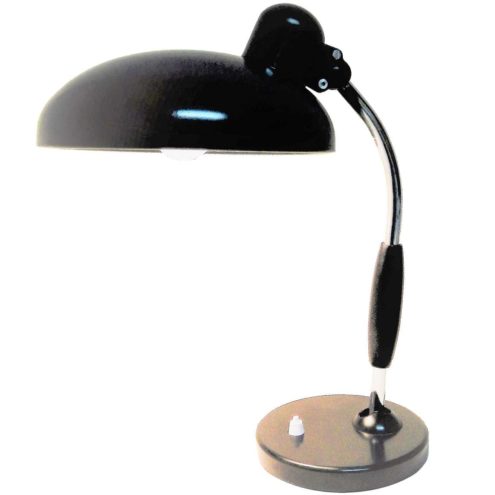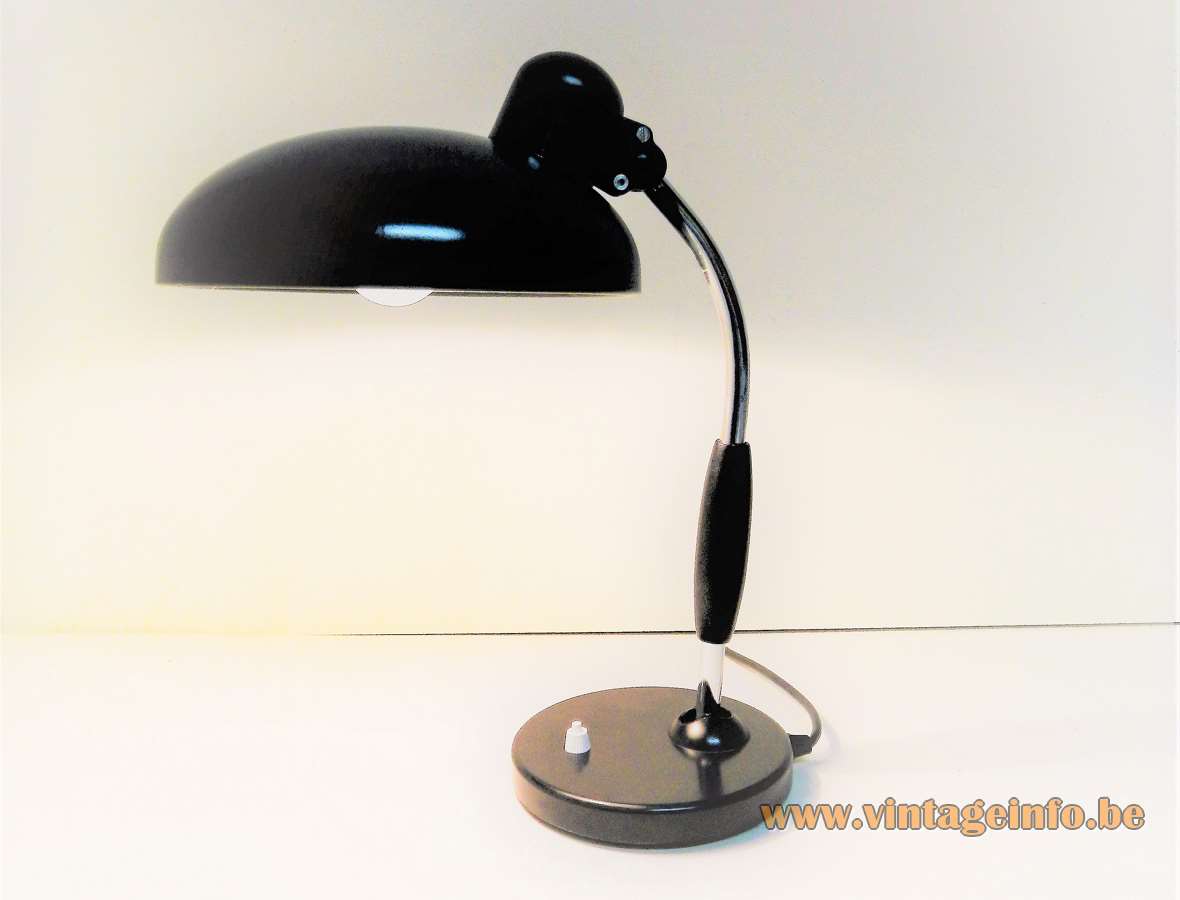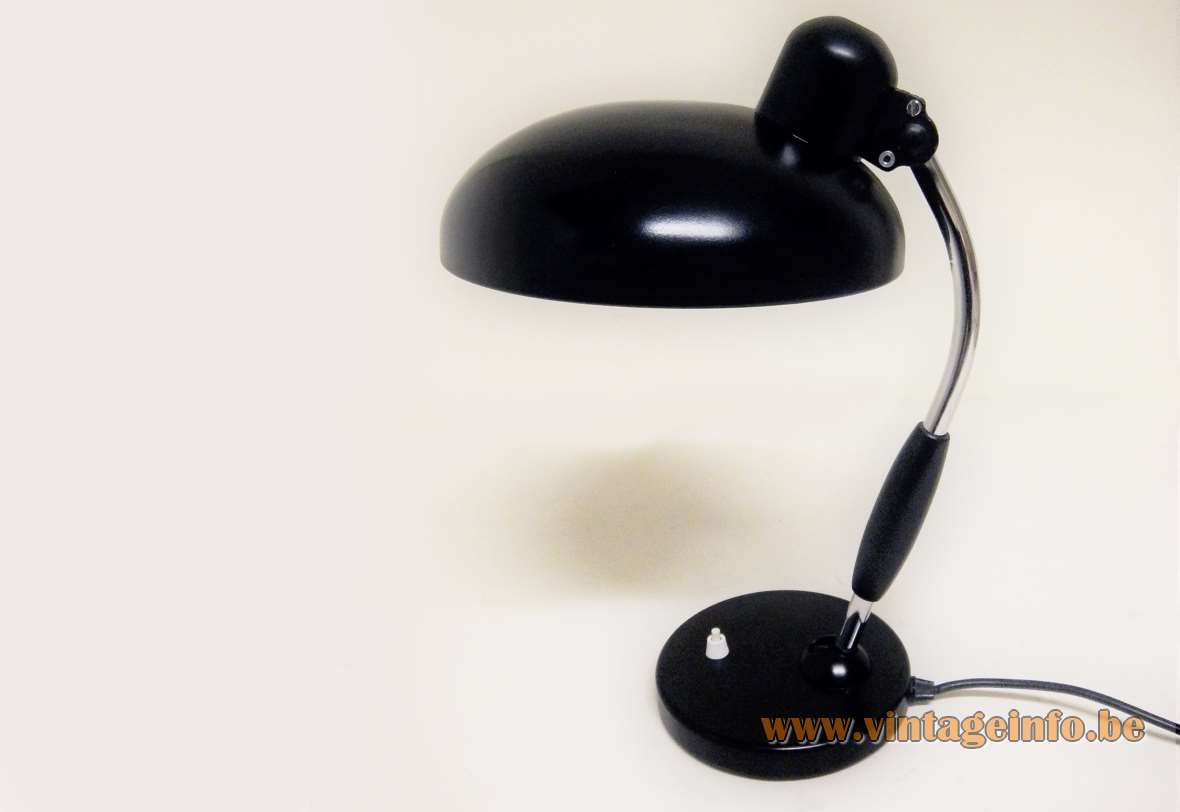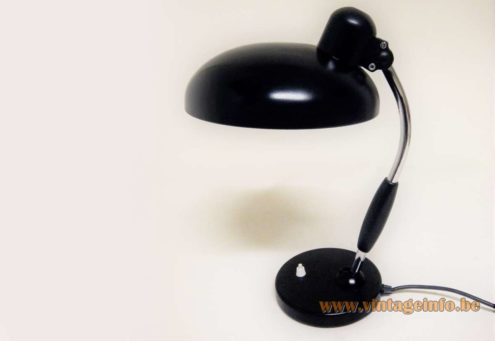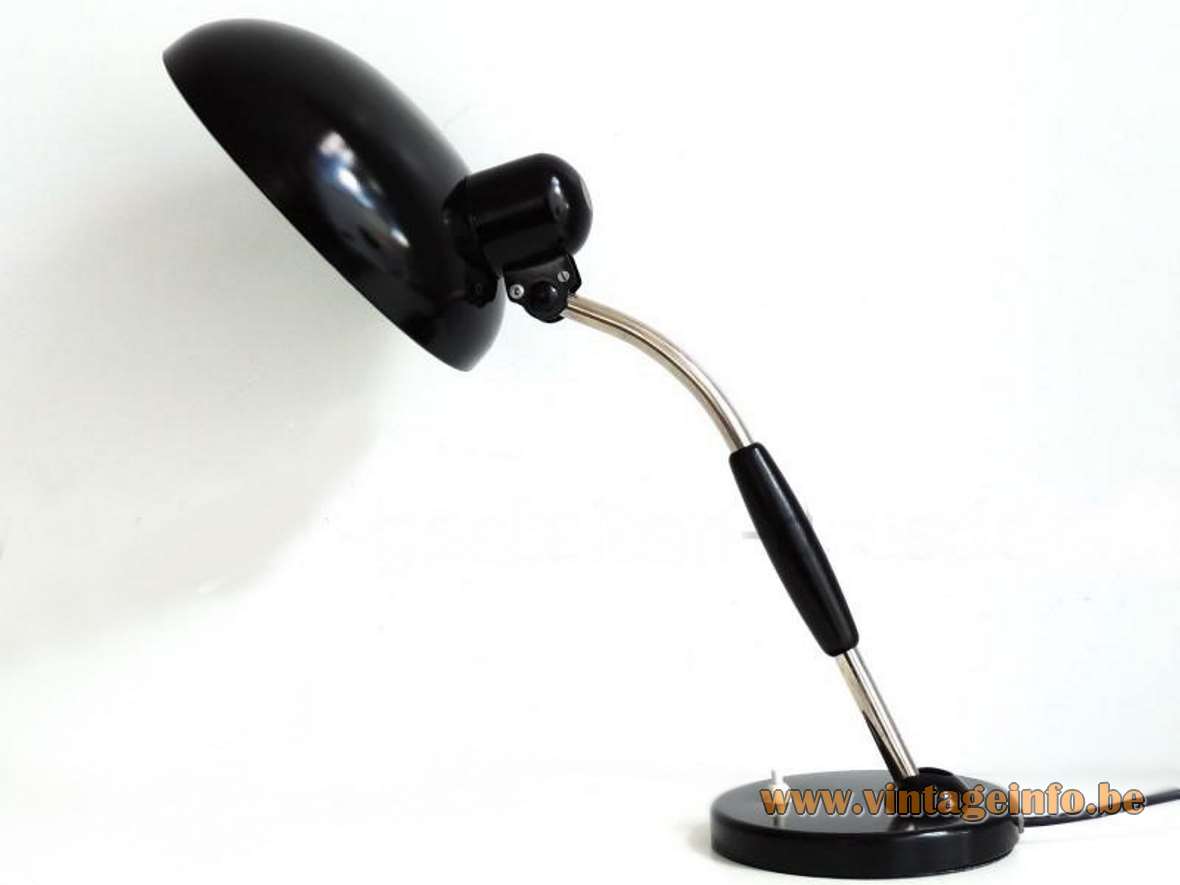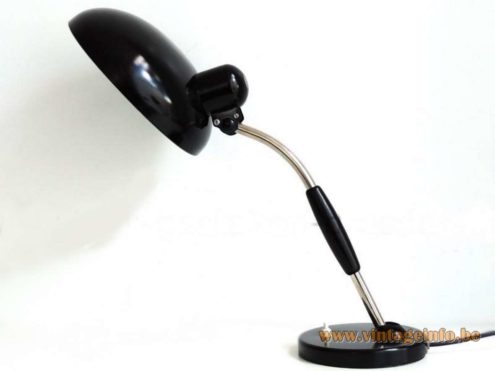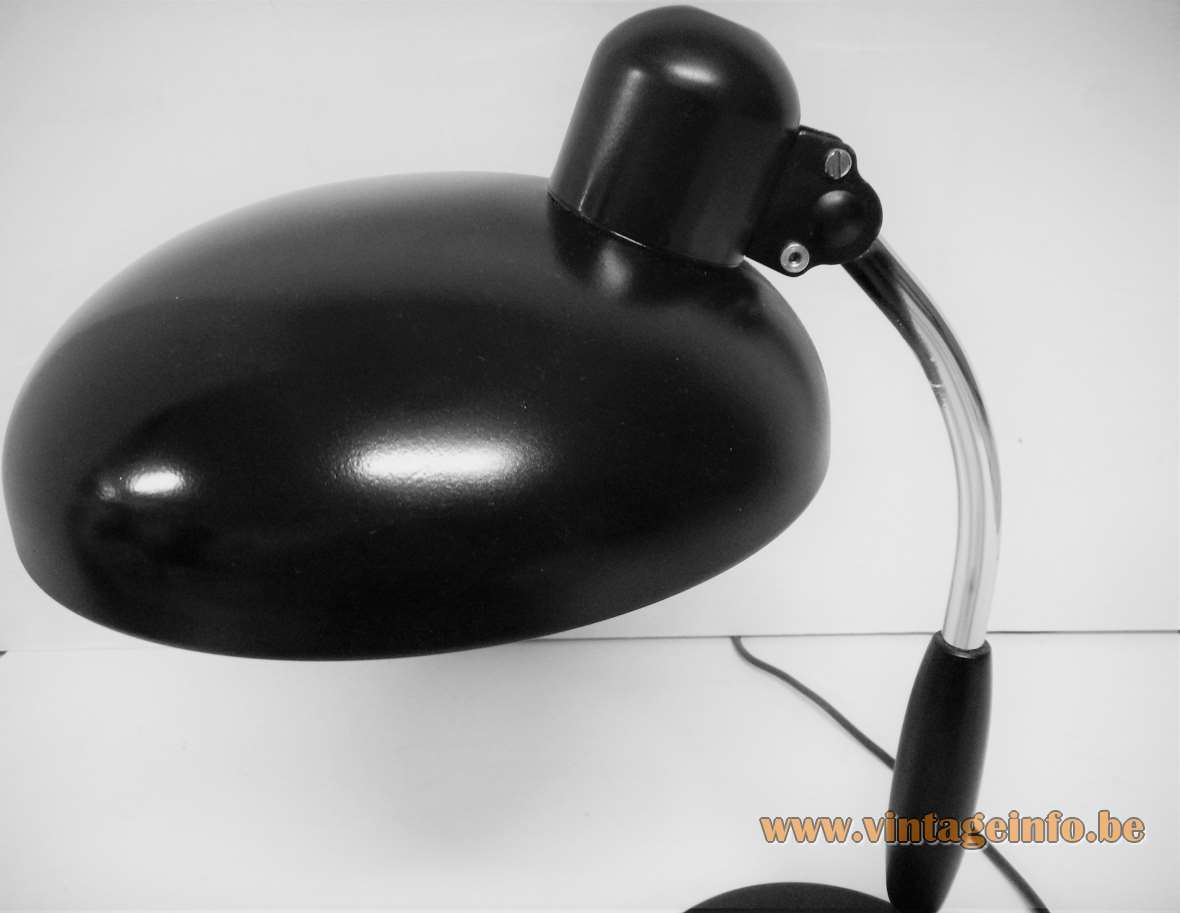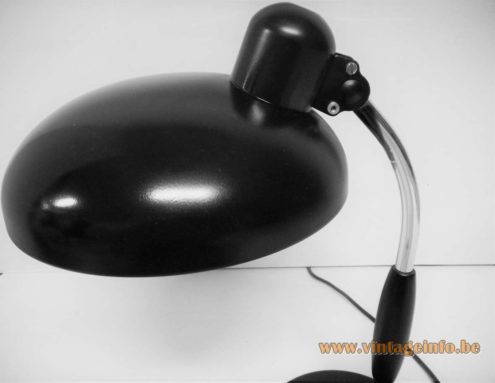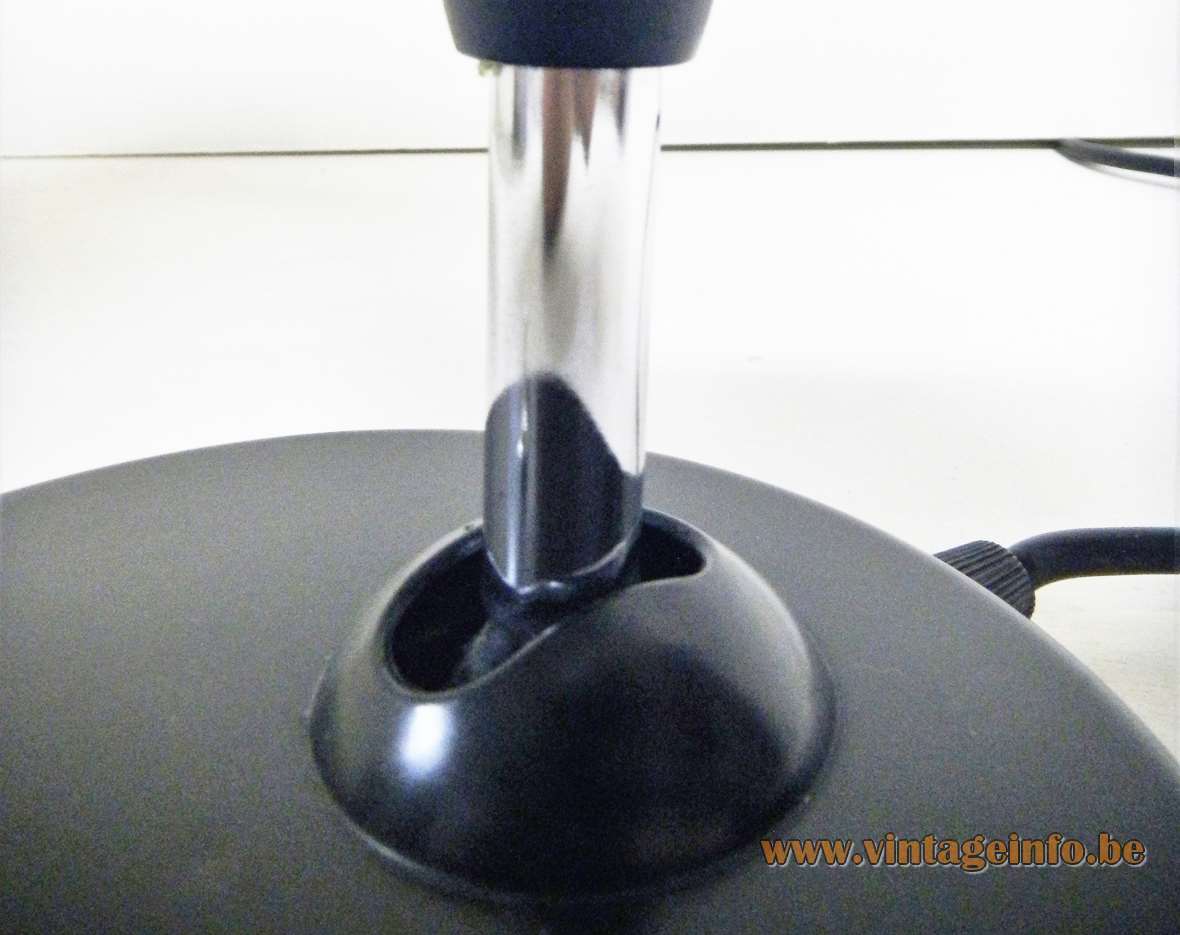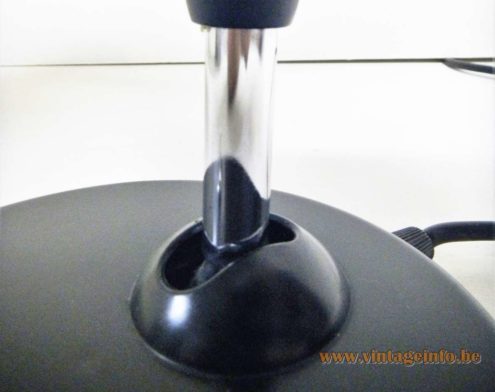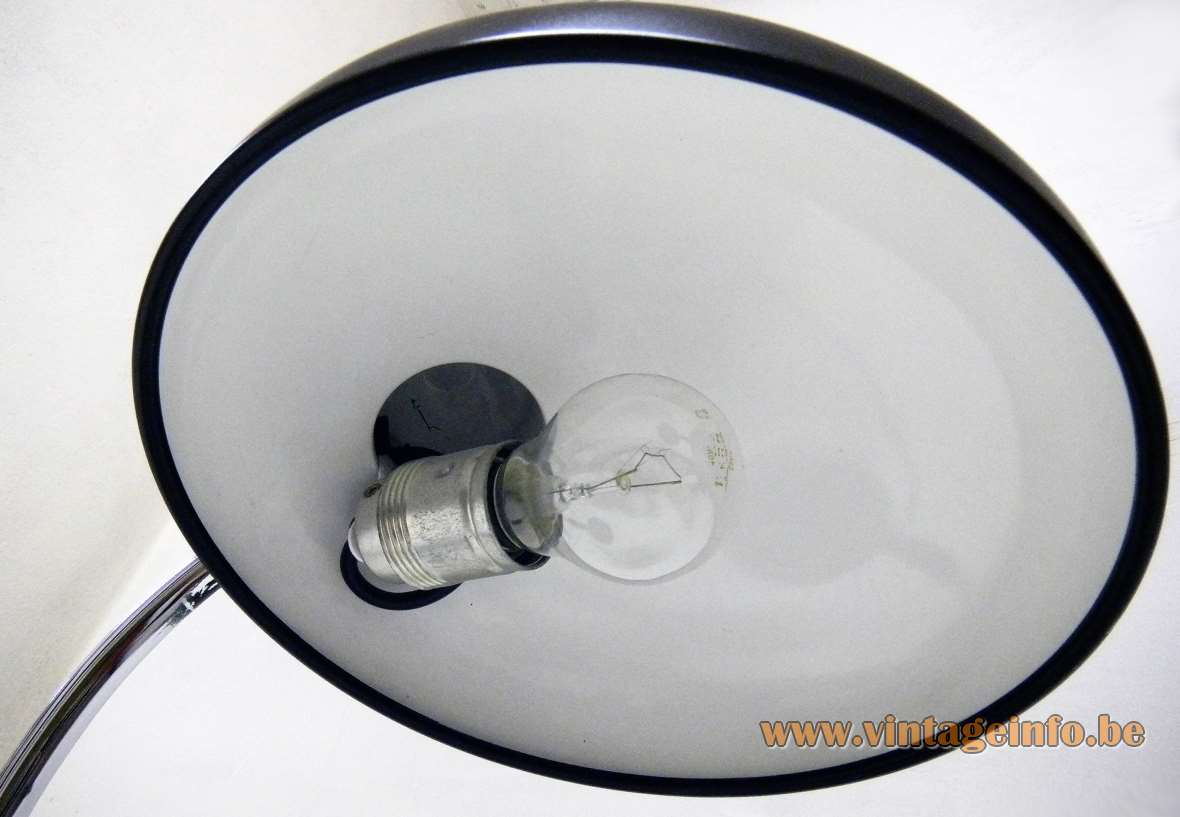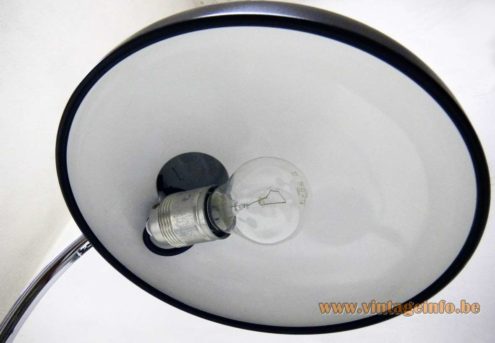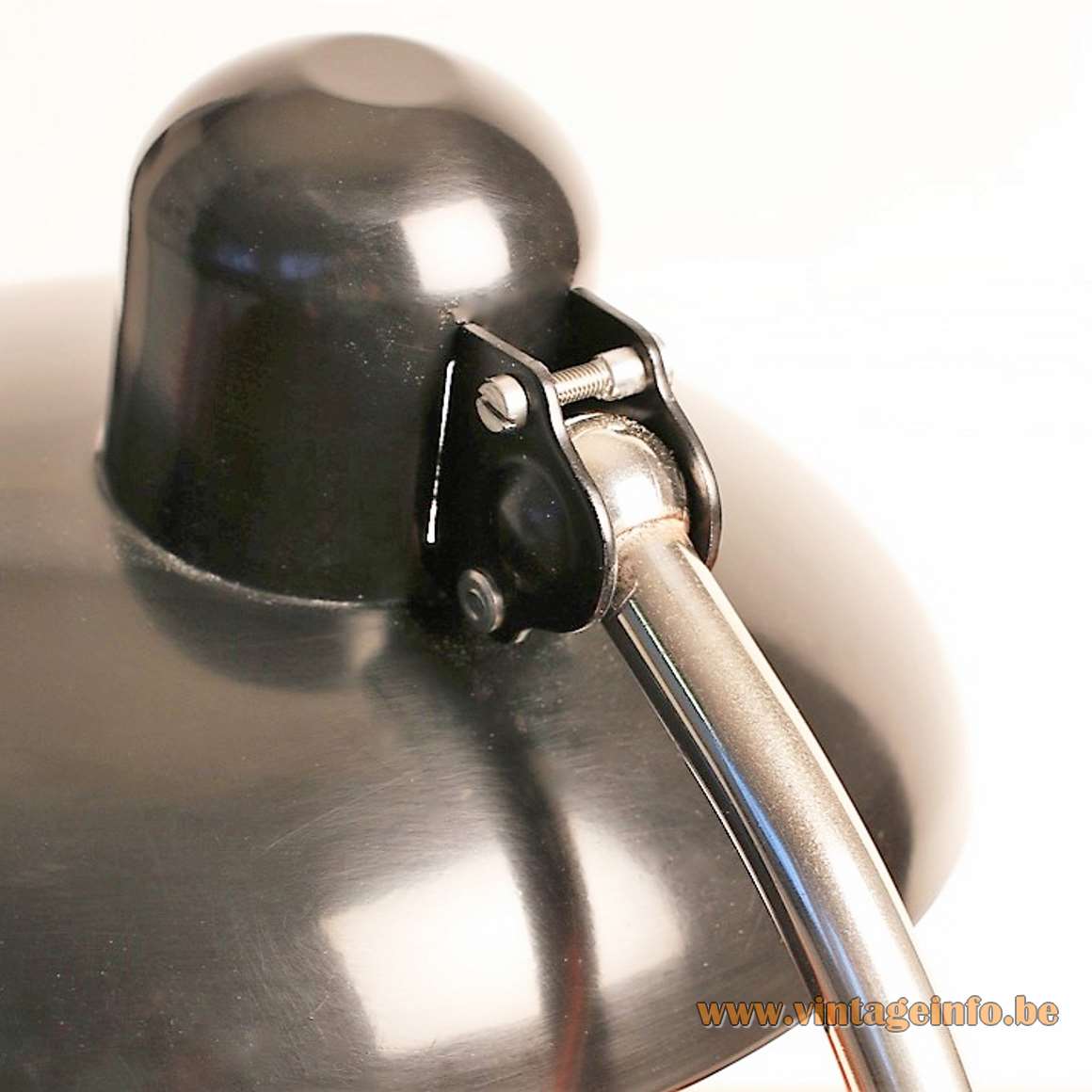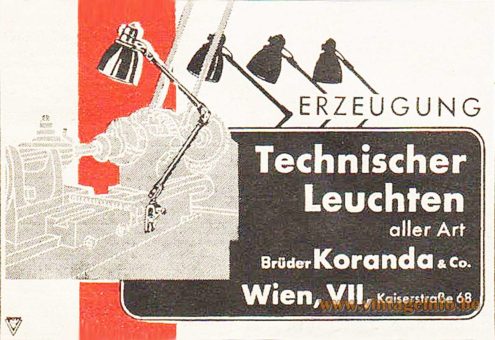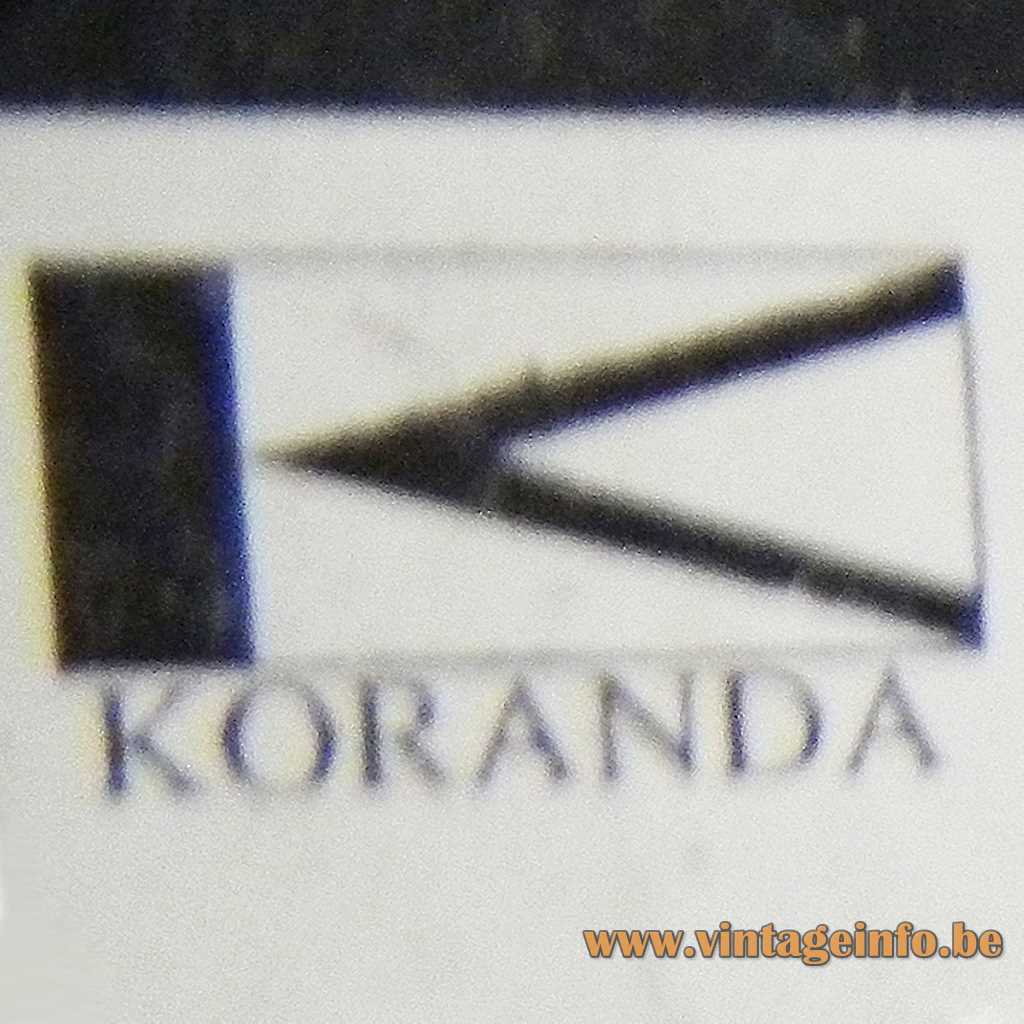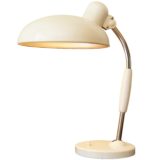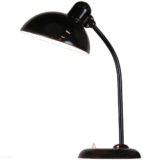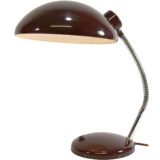Many thanks to Ger for the pictures.
Many thanks to Claes for the enlightening information, text and help.
Bruder Koranda & Co Desk Lamp
Materials: Black painted round metal (iron) base. Cast iron counterweight inside the base. Adjustable chrome curved rod with a black convex handle. Adjustable black painted aluminium lampshade. Galvanised metal E27 socket.
Height: 41 cm / 16.14”
Lampshade: ∅ 24 cm / 9.44”
Base: ∅ 14 cm / 5.51”
Electricity: 1 bulb E27, 1 x 75 watt maximum, 110/220 volt.
Any type of light bulb can be used, not a specific one preferred.
Period: 1990s – Bauhaus, Art Deco.
Designer: Andreas Hagn.
Manufacturer: Brüder Koranda & Co. OHG, Kaiserstraße 68, 1070 Vienna, Austria.
This Bruder Koranda & Co desk lamp TL 122 is a redesign by Andreas Hagn of the 1930s Kaiser Idell 6644 desk lamp designed by Christian Dell. It was redesigned in the 1990s. This lamp has an European CE label, it became mandatory in 1993.
A white version can be found here, on Vintageinfo.
It is unsure if Christian Dell ever designed lamps for Koranda. At least, he designed the ball link and brackets to hold the shade for Koranda in the early 1930s.
In 1933 – 1934 Kaiser bought the design right to use it in Germany. As all Koranda records were destroyed in the war it cannot be left out that Dell have had influence on the early Koranda table lamp designs, as the resemblance on the shade, bulb fix dome, ball link etc are very similar.
All this info is confirmed in the 1995 book: Idee Christian Dell by Peter M. Kleine and Klaus Struve. The pages about Koranda were written by Andreas Hagn himself.
Someone told me he bought this lamp in 1985 in Vienna…
Christian Dell
Christian Dell (1893–1974) was born in Offenbach am Main, in between Frankfurt am Main and Hanau in Hesse, Germany. From 1907 until 1911 he completed the silver forging studies at the academy, the “Königlich Preußischen Zeichenakademie” in Hanau.
At the same time he served an exacting apprenticeship as a silversmith, spending the years 1907-12 at the Schleissner & Söhne silver factory in Hanau.
In 1913 Christian Dell worked as a silversmith in Dresden before going to the “Großherzoglich-Sächsische Kunstgewerbeschule Weimar“, the Saxon college of arts and crafts in Weimar, were he met the Belgian artist and architect Henry van de Velde. Together with Victor Horta and Paul Hankar he could be considered as one of the main founders and representatives of Art Nouveau in Belgium.
After serving in the army, Christian Dell was a day laborer in the period 1918-1920 and then went to work in Munich as a master silversmith for Hestermann & Ernst. In 1920 Christian Dell went to Berlin to work for the silversmith Emil Lettré.
Bauhaus
Dell returned to Hanau and from 1922 until 1925 he worked as a foreman of the metal workshop at the “Bauhaus” in Weimar were he collaborated closely with Hungarian constructivist László Moholy-Nagy and produced numerous designs for office and workplace metal light fittings.
In 1926 he changed to the Frankfurt art school (Frankfurter Kunstschule). He designed a great deal of lighting, including the brass and nickel “Rondella-Polo” (1928-29) table lamp range (his real creative breakthrough) and the “Idell” range, which was mass produced mainly by Gebr. Kaiser & Co. Leuchten KG and later also by Bünte & Remmler.
At the end of 1928, a number of Dell’s designs were featured in an exhibition at the Kunsthalle Mannheim, about craftsmanship in the machine age.
The Nazi Party did not allow him to stay in the Frankfurt art school in 1933, but Walter Gropius offered him a job in the United States. However, Dell decided to remain in Germany and designed this lamp, model TL 122 with the curved handle for Koranda.
After World War II, Dell manufactured silver products and opened a jewellery shop in Wiesbaden in 1948, which he operated until 1955. He died in Wiesbaden in 1974.
Several lamps designed by Christian Dell are still in production and today are made by Fritz Hansen.
Koranda
Koranda was a family business. Unfortunately, hardly any information about it to be found. The company was located in 68, Kaiserstraße, 1070 Vienna and a shop was located in the Piaristengasse 60, also in Vienna. In 2002 Koranda was bought by AE Austria which was taken over in 2007 by the Belgian company Schréder S.A, today named Urbis Schréder. “Schréder is a group of 48 companies worldwide, with more than 2,600 men and women, passionate about light and innovation, experts in the design and development of outdoor lighting solutions.” The website of Koranda was located on www.koranda.at.
